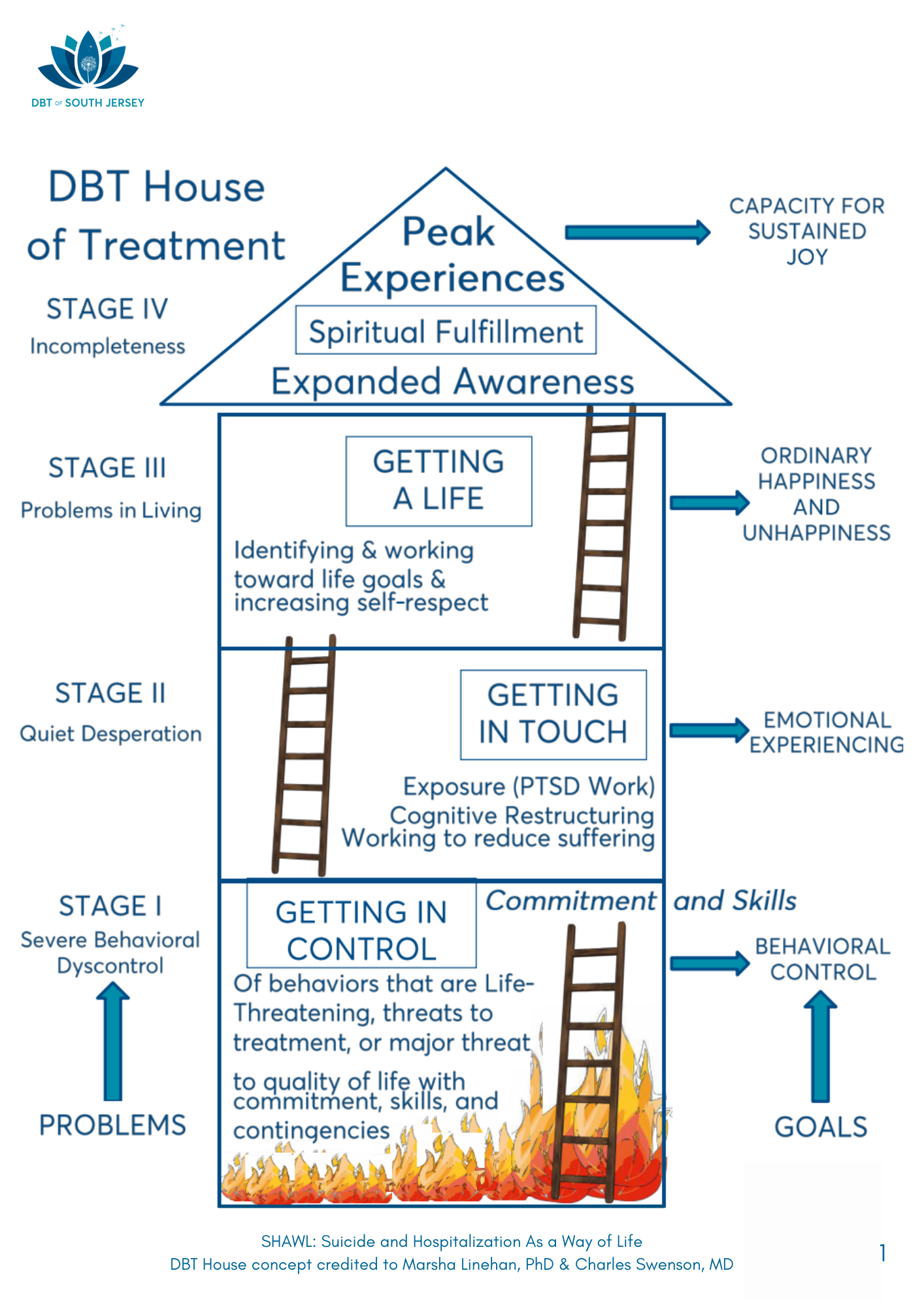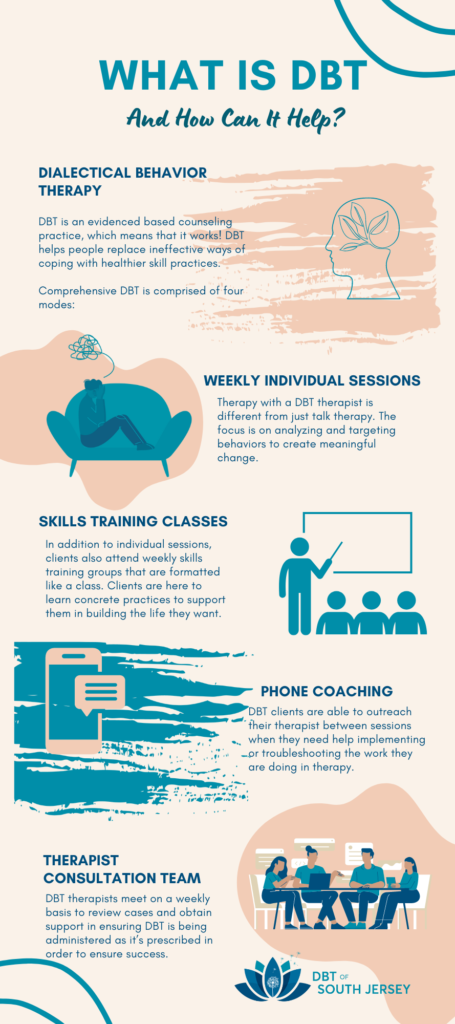In the vast landscape of mental health treatment, securing the services of a qualified therapist is pivotal for a successful therapeutic journey. As people embark on therapy for diverse reasons, the significance of a therapist’s credentials, particularly in specialized modalities like Dialectical Behavior Therapy (DBT), cannot be overstated.
This blog delves into the crucial aspect of a therapist being DBT certified, shedding light on why this specific credential holds immense importance in the realm of mental health care.
Understanding the depth of a therapist’s expertise and the adherence to evidence-based practices, especially in the context of DBT, becomes instrumental in fostering an environment conducive to positive therapeutic outcomes.
Understanding Dialectical Behavior Therapy (DBT)
Dialectical Behavior Therapy (DBT), crafted by Dr. Marsha M. Linehan, is a specialized cognitive-behavioral therapy (CBT). It targets emotional regulation, interpersonal effectiveness, distress tolerance, and acceptance of uncomfortable thoughts, proving effective for conditions like borderline personality disorder (BPD), depression, anxiety, and substance abuse.
This structured approach integrates individual and group therapy, highlighting the interplay between acceptance and change. DBT imparts practical skills, empowering individuals to navigate complex emotions, foster healthier relationships, and improve overall well-being. The emphasis on skill-building sets DBT apart, making it a valuable therapeutic tool for those seeking evidence-based strategies to manage their mental health challenges.
The Importance of Therapist Credentials
Credentials serve as a testament to a therapist’s education, training, and expertise in a particular therapeutic approach. While there are various therapeutic modalities, having a therapist with specific credentials can significantly impact the quality and effectiveness of treatment. When it comes to DBT, therapist certification becomes particularly important due to the structured nature of the approach and the need for specialized skills.
In-Depth Training and Expertise
DBT certification signifies that a therapist has undergone comprehensive training in Dialectical Behavior Therapy. This training includes understanding the theoretical underpinnings of DBT, learning specific therapeutic techniques, and gaining practical experience in applying these skills to diverse clinical situations. A certified DBT therapist is equipped with the knowledge and expertise needed to address the unique challenges faced by individuals seeking help for emotional dysregulation and other related issues.
Adherence to the Model
DBT follows a specific model outlined by Dr. Linehan, and adherence to this model is crucial for its effectiveness. A therapist who is DBT certified is more likely to adhere closely to the principles and strategies outlined in the DBT model. This ensures that individuals receiving DBT are benefiting from a standardized and evidence-based approach, leading to consistent and reliable outcomes.
Effective Application of Skills
DBT is known for its emphasis on teaching practical skills to individuals in therapy. A certified DBT therapist has the competence to not only teach these skills but also to adapt them to the unique needs and circumstances of each client. The therapist’s ability to effectively apply DBT skills contributes to the overall success of the therapeutic process, helping clients achieve sustainable positive changes in their lives.
Multifaceted Approach to Treatment
DBT involves a multifaceted approach, encompassing individual therapy, group skills training, phone coaching, and therapist consultation teams. A certified DBT therapist is well-versed in integrating these components seamlessly to provide a comprehensive treatment experience. This holistic approach addresses various aspects of an individual’s life, promoting long-term success in managing emotions and building a life worth living.
Enhanced Quality of Care
Choosing a DBT-certified therapist ensures a higher quality of care. Certification requires ongoing education and professional development, keeping therapists updated on the latest research and advancements in the field. This commitment to continuous learning reflects a dedication to providing the best possible care for clients, fostering an environment of trust and confidence in the therapeutic relationship.
How to Verify DBT Certification
Verifying whether a therapist is truly DBT certified is a crucial step in ensuring the legitimacy of their credentials. The Dialectical Behavior Therapy-Linehan Board of Certification (DBT-LBC) is the organization responsible for certifying therapists in DBT.
Individuals can visit the official DBT-LBC website to access a directory of certified DBT therapists. This directory serves as a reliable resource for confirming a therapist’s certification status, ensuring that clients are receiving DBT from qualified professionals.

Challenges of Non-Certified Therapists Offering DBT
While there may be therapists who incorporate DBT principles into their practice without formal certification, it’s essential to recognize the potential drawbacks of working with non-certified practitioners.
Lack of Specialized Training
Non-certified therapists may not have undergone the specialized training required for DBT. This can result in a less nuanced understanding of the approach, potentially leading to ineffective or inconsistent application of DBT principles.
Limited Access to Consultation Teams
Certified DBT therapists participate in regular consultation teams where they discuss cases and receive guidance from experienced colleagues. Non-certified therapists may lack access to these valuable resources, missing out on opportunities for professional growth and improvement.
Inconsistent Application of DBT Skills
DBT skills are specific and require a deep understanding of their application in various situations. Non-certified therapists may struggle to apply these skills effectively, diminishing the potential benefits for clients seeking DBT treatment.
Risk of Deviating from the Model
DBT certification ensures adherence to the model developed by Dr. Linehan. Therapists without this certification may unknowingly deviate from the prescribed model, compromising the integrity of the therapeutic process and potentially reducing its effectiveness.
Conclusion
In conclusion, the importance of a therapist being DBT certified cannot be overstated when considering Dialectical Behavior Therapy as a treatment option. Certification ensures that therapists have undergone rigorous training, possess in-depth knowledge of the DBT model, and adhere to evidence-based practices. Clients seeking DBT can benefit significantly from the expertise of certified therapists, experiencing a higher quality of care and an increased likelihood of positive outcomes.
As individuals navigate the complex landscape of mental health treatment, understanding the significance of therapist credentials becomes a crucial factor in making informed decisions. Choosing a therapist with DBT certification is a step towards receiving specialized, effective, and evidence-based care that can lead to lasting positive changes in one’s life.


